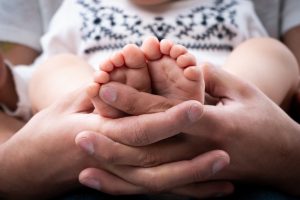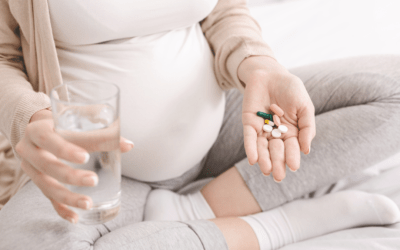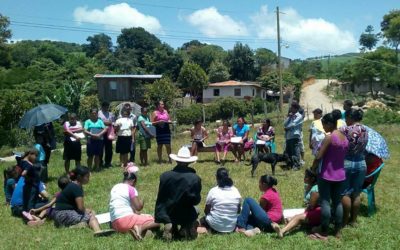In situations such as the current health emergency caused by Covid-19, protecting the mother’s emotional balance is essential.
There is a key moment in the life of human beings and it begins with conception and pregnancy. According to epigenetics, development and the prenatal environment are fundamental in the future of people.
The term epigenetics means beyond genes and focuses on the study of how environmental factors can turn genes on or off. The environment in which a baby develops before birth provides powerful experiences, which chemically modify the expression of certain genes during their formation.
How does this link between genes and the environment influence health and the possibility of preventing diseases and deficiencies of the unborn baby, among other aspects? According to a variety of studies carried out by the Center on the Developing Child at Harvard University, “experiences such as malnutrition, exposure to chemical toxins or drugs, and ” Toxic stresses before birth or in early childhood are not forgotten, but are integrated into the architecture of the developing brain through the epigenome.” (Epigenetics and Child Development: How Children’s Experiences Affect Their Genes , 2018)
These “biological memories” associated with epigenetic changes can affect multiple organ systems and increase the risk not only of impacts on physical and mental health, but also of deficiencies in learning capacity and behavior in the future.
Research has shown that stressful experiences to which the mother is exposed during pregnancy, or during delivery and the first months of her baby’s life, can produce chemical changes that alter the receptor in the brain that controls the hormone cortisol, generating a greater risk that the infant will develop mental illnesses, generalized anxiety and depression in the future. As well as physical ailments such as asthma, hypertension, heart disease, and diabetes. (Early Experiences Can Alter Gene Expression and Affect Long-Term Development , National Scientific Council on the Developing Child, 2010).
However, it is important to understand that genetic changes can also be influenced by positive experiences. A calm environment, family support, words and gestures of affection are able to reduce stress and promote a proper development of the physical and emotional health of the unborn baby.
Timely medical care for pregnant women, infants, and young children, as well as support for new parents can, “Literally affect the chemistry surrounding children’s genes. Supportive relationships and rich learning experiences generate positive epigenetic signatures that activate people’s genetic potential .
Caring for the emotional balance of pregnant women during the pandemic 
The emergence of Covid-19 in the world has caused a series of effects in all areas of life. The severity of the disease, the confinement measures to stop the contagion, the economic and social consequences that it has generated, among other aspects, threaten the emotional balance of human beings and place them in a state of vulnerability, which deeply worries about the impacts it is causing and its consequences in the future.
According to a survey conducted by Ipsos for the World Economic Forum, between February and March 2021, 45% of people worldwide said that their mental health had worsened since the start of the pandemic (One Year of Covid-19 ). Pregnant women are a group especially vulnerable to the stress generated by Covid-19.
The fear of catching the virus, the isolation caused by confinements and domestic violence, the challenge of teleworking and educational tasks with children, as well as an increase in financial difficulties are possible sources of maternal stress. These risk factors are associated with mental health problems during the Covid-19 pandemic (Coronavirus infection and pregnancy , Royal College of Obstetrics and Gynecologist, 2020). Roberto Cano Tamayo, cognitive neuroscientist, analyzes maternal stress during the pandemic and the links that favor the development of the newborn.
It emphasizes that exposure to different stressors during pregnancy does not only affect the mother: “The evidence shows that many areas in our brain have been changed due to the emotions we feel and that affect cell formation and division.
These genetic changes, at the level of our chromatin, are transmitted in the symbiotic relationship that the mother has with the baby from gestation ”, and explains that these affectations can have lasting effects throughout life. Therefore, it is essential to find mechanisms to overcome stressful situations in expectant mothers.
Dr. Tamayo takes up the recommendations of the National Center for Post-Traumatic Stress in the United States , with a technique that raises five elements that can be used by the mother and her environment to cope in a time of crisis.
- Sense of security
By planning and organizing time, uncertainties are reduced.
- Sense of calm
Through relaxation, decreasing the speed of activities.
- Sense of connection
Seek and obtain support from the environment, get involved in educational and cultural activities. Inform.
- Self-efficacy
Remember the personal skills and strategies used in similar situations and enhance them.
- Hope
Build confidence in the future. Applying this procedure and other techniques to reduce negative emotions and tension is a priority to achieve and maintain a state of calm in pregnant mothers and their babies. “This is a time to look at epigenetics as a tool that allows us to be agents of change,” says the expert.
Strengthening the bond between parents and babies in gestation and in their first months of life is a timely and efficient tool to avoid stressful situations such as that caused by the pandemic. Elmer Vega Salazar, director of the Waal Foundation (FdW), in Bolivia recalls the importance of a 12-month pregnancy , promoted by the PreNatal program, which begins with a planning of at least three months prior to the conception of the baby and maintaining the care in the nine months of gestation.
“Pregnancy planning, conducting a preconception consultation , avoiding risky and stressful situations is the ideal starting point for the psychological balance of the couple and the family,” he indicates. Explains that sending happy thoughts to the baby, avoiding violent environments and achieving a secure attachment process at the time of delivery and in the hours after birth is a very important element in the emotional development of the human being.
At the Waal Foundation we believe that attachment is present long before, in the stage of pregnancy and even from the moment of conception. For this reason, we insist on the importance of planning the pregnancy, since when conception takes place, parents naturally direct their thoughts towards the future baby. And if those thoughts are of love, hope and joy towards their eventual presence in the world, in that way the bond between the baby and his parents will start much stronger and will have an impact on the emotional stability and appropriate development of the child.
We invite you to see the FBLive Maternal Stress during the COVID-19 pandemic and links that favor the development of the newborn , with the participation of the MSc. Roberto Cano Tamayo, who analyzes the potential sources of maternal stress and how they can act as risk factors and affect the health of pregnant women and their children during the current crisis. http: // https: //www.youtube.com/watch? v = M6B2quby2hQ
Resources to face the Covid-19 crises – Pan American Health Organization (PAHO)
6 tips to cope with stress in the face of the COVID-19 pandemic http: // https: //www.youtube.com/watch? Time_continue = 153 & v = 8cIhYlwNp8A & feature = emb_logo
4 tips to cope with stress and take care of mental well-being during isolation or quarantine http: // https: //www.youtube.com/watch? V = VSsK4S7PROA [/]
SOURCES
Epigenetics and Child Development: How Children’s Experiences Affect Their Genes , Center on the Developing Child , 2018. Early Experiences Can Alter Gene Expression and Affect Long-Term Development , National Scientific Council on the Developing Child, 2010.
Coronavirus infection and pregnancy , Royal College of Obstetrics and Gynecologist, 2020. One Year of Covid-19 , Ipsos-World Economic Forum, 2021.
Recommended interventions in mental health and psychosocial support during the COVID-19 pandemic, PAHO, 2020.
Attachment, a bond that favors development , Waal Foundation, 2019.



